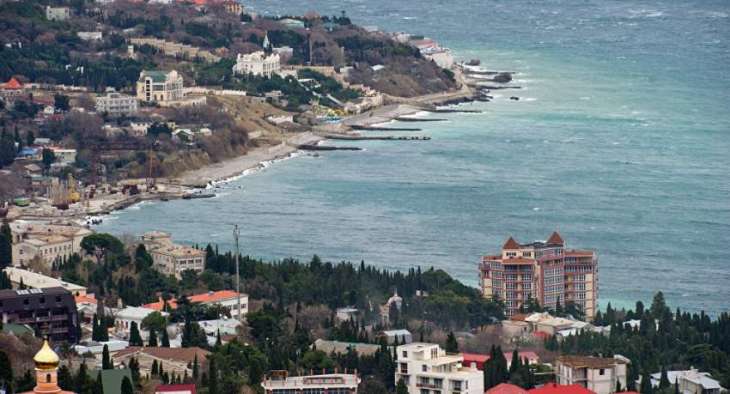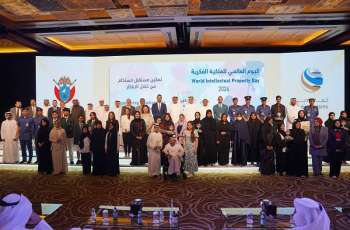Over the past five years, Western countries have come to terms with the fact that Crimea is a part of Russia as the peninsula becomes a more and more popular destination for foreign delegations and tourists
SIMFEROPOL (Pakistan Point News / Sputnik - 12th March, 2019) Over the past five years, Western countries have come to terms with the fact that Crimea is a part of Russia as the peninsula becomes a more and more popular destination for foreign delegations and tourists.Crimea rejoined Russia in 2014, when more than 96 percent of those participating in a regional referendum voted in favor of the reunification.
According to the head of the Crimean parliament's inter-ethnic relations committee, Yury Gempel, the majority of foreigners, including those coming from the EU countries, are changing their attitude toward the Russian Crimea.
"If we look at the trends of the last five years, we can see a positive change in the attitude of foreigners [toward Crimea]. There is no more mistrust, endless aggressive attacks and intense debates, which took place after the Crimean referendum ... Despite the fact that there has been no official recognition [of Crimea's status], the West, for example, has already come to terms with the fact that Crimea is Russian and this is forever," Gempel told Sputnik.
Gempel also stressed the need to note the difference between public opinion and that of the official authorities of Western countries toward Crimea, stressing that some of them continued to play "the role of the United States' vassals" and expressed support for sanctions against Russia.
"In my opinion, the prospects for the official recognition of Crimea's [status by the West] is still far away, but, taking into account the fact that the attitude of the [Western] public toward Crimea as a part of Russia is changing, the Crimean issue will be frozen in the near future," he underlined.
Gempel noted that European investors had already been working with Crimea as a Russian region, despite the official position of the authorities of their countries.
POPULAR DESTINATION FOR FOREIGNERS
Georgy Muradov, the peninsula's deputy prime minister and its permanent representative to the Russian president, said the first five years since Crimea's reunification with Russia were marked by the constant increase in foreign arrivals to the peninsula.
"Every year, between about 100 and 150 delegations are coming to Crimea. Over the past years, we have even exceeded these numbers. First of all, they are diplomats, politicians, members of parliament of different ranking, businessmen, artists, journalists," Muradov told Sputnik.
According to the deputy prime minister, representatives from 50 to 80 countries are arriving in Crimea every year.
At the same time, Muradov stressed that Crimea, as a subject of Russia, did not require any recognition of its status from foreign states.
RECOGNITION OF CRIMEA'S STATUS 'GAINING MOMENTUM'
The process of the recognition of Crimea's current status is gradually gaining momentum on the international stage, according to Alexander Formanchuk, the deputy chairman of the expert advisory council under the head of Crimea.
"One cannot fool the entire world with speculations about the non-recognition of Crimea. Sooner or later, this will come to an end. We see that, among the public and parliament members ... from European countries, the number of those who understand the meaninglessness of punishing Russia for Crimea's return on the basis of ... the referendum, is growing," Formanchuk stressed.
While stressing that it was still premature to talk about the international recognition of Crimea's status, he noted that it was clear this process was "irreversible" and that the sides were "on the path to restore normal relations."
Crimea's reunification with Russia was not recognized by Ukraine or Western states, which subsequently imposed economic and political sanctions on Moscow. Russian President Vladimir Putin has said that the issue of Crimea's territorial belonging is "historically closed" as Crimean residents decided to rejoin Russia in accordance with democratic procedures.




